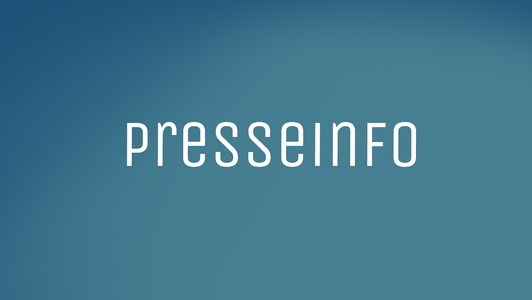30 years of Austria in the EU – 30 years of educational opportunities
On Europe Day on 9 May, Austria celebrates not only the idea of a united Europe, but also a special anniversary: 30 years ago, in 1995, Austria joined the European Union. For the OeAD – Austria's Agency for Education and Internationalisation – this is an occasion to highlight the central role of the EU in promoting education, youth and mobility.
‘For us, Europe means exchange, learning, development – and above all, the future. Thanks to programmes such as Erasmus+, hundreds of thousands of people in Austria have been able to look beyond their national borders and pursue international educational paths over the last few decades. This not only promotes skills development, but also innovation competence,’ says Jakob Calice, Managing Director of the OeAD.
Track record: Erasmus+ in figures
Austria has been participating in the Erasmus+ programme since 1992. What began as a mobility initiative for students is now a central pillar of European education policy, with an impact on all areas of education and age groups. From school classes to apprentice groups, from teachers to researchers.
Between 2021 and 2024 alone, over 116,000 stays abroad and around 2,300 projects in the sectors of school education, vocational education and training, higher education, adult education, youth and sport will be made possible.
- In higher education, over 43,000 people received funding for study visits, teaching assignments and traineeships. This also includes stays outside Europe, which make a significant contribution to raising Europe's profile worldwide and thus strengthening its global position.
- More than 43,000 learners and teachers also took part in Erasmus+ in the school and vocational education sectors.
- All nine federal provinces benefited: Vienna, for example, received over 94 million euros and more than 36,000 funded stays abroad, while Styria received 23,000 stays abroad and 54 million euros.
These figures underline that international education is a living reality in Austria.
30 years of Europe, 30 years of progress: without the EU, there would be no internationalisation
What we take for granted today – studying in France, teaching in Finland, learning in Slovenia – is a direct result of European education programmes. As the OeAD emphasises at www.oead.at/EuropaundWir: ‘Europe is the framework within which the OeAD operates – politically, programmatically and structurally.’
Erasmus+ is a prime example of a Europe of opportunities. It not only strengthens competitiveness, but also cohesion, understanding of democracy and equal opportunities.
European education policy as an investment in the future
In line with the Union of Skills launched by the European Commission in March 2025, European programmes and initiatives play a central role in the implementation of a single European skills area. The aim is to connect skilled workers, learners and companies across Europe, make qualifications more transparent and prepare people for the demands of a changing world of work.
‘Education is a key lever for cohesion, innovation and competitiveness in Europe. As a national agency, the OeAD makes a decisive contribution to the implementation of these European goals,’ emphasises Calice.
Shaping the future from 2028
Despite the considerable successes, however, it is also clear that demand exceeds supply. Austrian educational institutions could use significantly more funds for internationalisation. Already, 100% of EU funding is committed.
The current strategy paper (‘Future Generation of Erasmus+’) of the ACA (Academic Cooperation Association) warns urgently against insufficient funding in the Erasmus+ programme period from 2028 onwards. Europe's education agencies are calling for an Erasmus+ programme with more funding, greater social inclusion, digital excellence and clear contributions to ecological change.
The OeAD joins this appeal: ‘A strong Erasmus+ means a strong Europe. An ambitious budget is needed for the programme period from 2028 onwards.’
International recognition for Erasmus+: European Integration Award 2025
On 7 May 2025, the Erasmus+ programme was awarded the prestigious European Integration Award by the Cercle d'Economia. The award recognised the programme's significant role in European integration, cohesion and strengthening the younger generation. The prize was accepted by Roxana Mînzatu, Executive Vice-President of the European Commission for Social Rights and Skills, High-Quality Jobs and Welfare.


